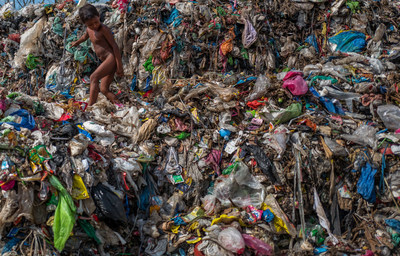 |
Orb Media examines four aspects of the plastic problem: marine waste, microplastics, chemicals, and recycling
WASHINGTON, Dec. 14, 2018 /PRNewswire/ -- New Orb Media Inc. reporting and data analysis shows consumers are extremely worried about plastic's impact on the world. There is widespread public confusion regarding responsibilities and options, and the role of governments and industry in reducing plastic pollution.

Reporting highlights include:
Plastic Bag Substitutes Generate Greater Carbon Footprint
Compostable plastic bags can't degrade in landfills or nature and must be separated and heated in an industrial facility. Most bioplastics have the same environmental hazards and a bigger carbon footprint.
Studies show that making and moving glass bottles uses nearly five times more energy.
Paper bag production considered a greener choice by many, produces more air pollution than plastic bag production.
Attitude Impacts Recycling Habits
Recent research shows the mood of a community can affect recycling rates. The average weight of campus recycling was nearly 50 percent higher after a college basketball victory than after a loss or tie at one U.S. university. On rainy days, the total mass of household recycling collected in one London borough fell by one kilogram for every millimeter of precipitation.
Microplastics Are Everywhere
Less prominent in the plastic narrative are emerging questions over microplastic pollution in food, air, soil, and water, and the safety of chemical additives in plastic food packaging.
Orb Media is pleased to partner with members of the Orb Media Network (OMN), a group of global agenda-setting media which collaborate to simultaneously publish stories together that catalyze global dialogue on critical issues, focusing the attention of government, industry, researchers, civil society, and the public.
OMN participants: Channels TV (Nigeria), Dhaka Tribune (Bangladesh), Folha de São Paolo (Brazil), Tempo Media Group (Indonesia), The Hindu (India), YLE (Finland), CBC (Canada), SVT (Sweden), Die Zeit (Germany), BBC (United Kingdom), Cadena SER-Prisa (Spain), El Comercio (Perú), El País (Uruguay), Mail & Guardian (South Africa), El Tiempo (Colombia), La Nación (Argentina), eNCA (South Africa), South China Morning Post (China), Louisville Public Media (United States).
About Orb Media
Orb Media produces original research and reporting on issues that impact billions of people, uniquely fusing original research, global data analysis, field reporting, and engaged public to deliver an accurate global picture of our interdependent world. orbmedia.org/theplasticquestion.
CONTACT: Lara Kline, 1-202-9058370, lara@littletomato.co
Photo - https://mma.prnewswire.com/media/797937/Orb_Media_Plastic_Debris.jpg
Logo - https://mma.prnewswire.com/media/652865/Orb_Media_Logo.jpg